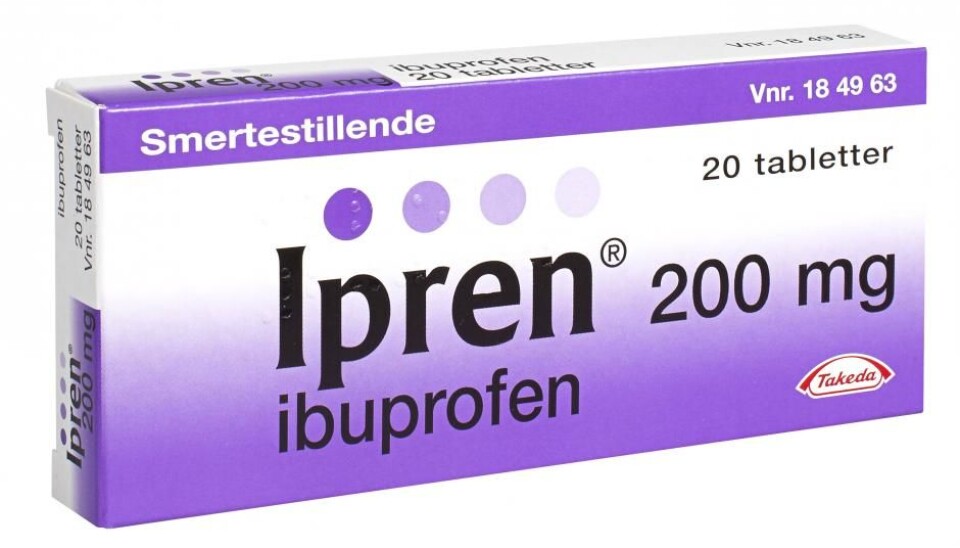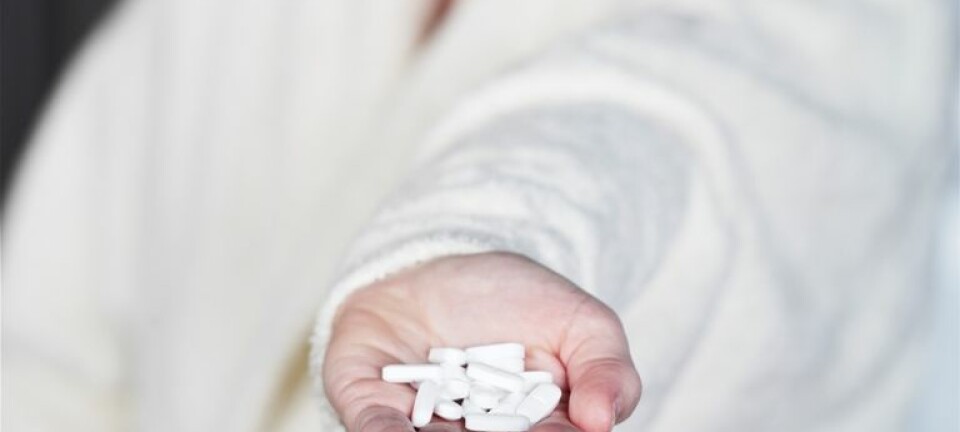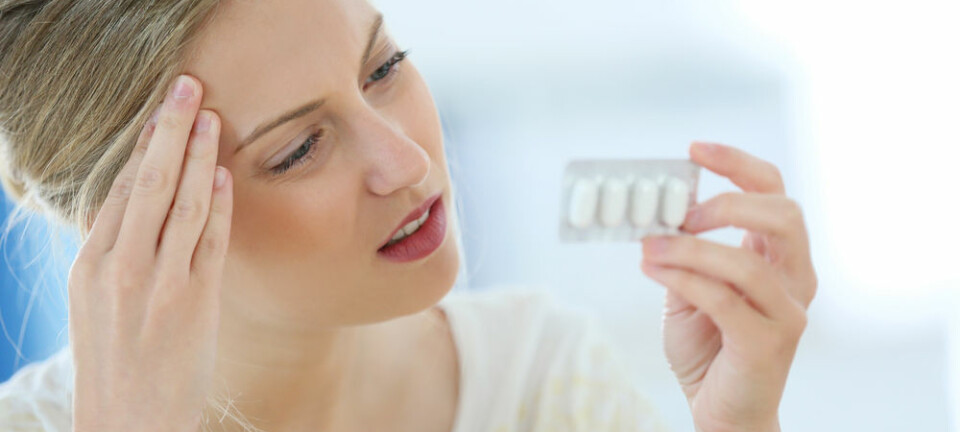
Ibuprofen can damage men’s endocrine system
Scientists saw a hormone imbalance in 14 young men who took ibuprofen for two weeks similar to that of a 70-year-old.
Ibuprofen can reduce the production of testosterone in men, shows new research.
Taking the painkiller daily for just two weeks resulted in a hormone imbalance among young male participants that more closely resembled that of older men whose testes produce less testosterone, say the scientists behind the study.
“It’s worrying because it’s important that men’s testosterone levels are stable. Otherwise, it can lead to problems with, for example, muscle development, mood, and potency,” says David Møbjerg Kristensen, a senior researcher at the Danish Headache Center at Rigshospitalet and co-author of the new study,which is published in the scientific journal PNAS.
Ibuprofen knocks endocrine system out of balance
Kristensen and colleagues conducted both a randomised control trial and laboratory experiments, which showed that ibuprofen can reduce the testes’ ability to create testosterone.
In the randomised trial, 31 men between the age of 18 and 35 were split into two groups. One was given 600 milligrams of ibuprofen every day for 44 days. The other group received a placebo.

Throughout the trial, scientists measured the content of luteinizing hormone (lutropin) in the participants’ blood samples.
Lutropin indicates how much testosterone is produced by the testes, says Kristensen.
When less testosterone is produced, the brain tries to compensate by emitting large amounts of lutropin. This sends a message to the testes to produce more testosterone. So, elevated levels of lutropin in the blood indicates lower testosterone production.
The 14 male trial participants who received ibuprofen all had elevated levels of lutropin after just two weeks.
Read More: Painkillers lower fertility in mice
Endocrine system resembled that of a 70-year-old
When the brain tries to compensate for reduced testosterone levels by emitting lutropin, it is called compensatory hypogonadism.
“Compensatory hypogonadism is normally observed among older men, because as the years go by the testes being to produce less testosterone ,” says Kristensen.
“In our experiment we see that young men who take ibuprofen resemble what we see in 70-year-old men. We don’t yet know what the consequences could be, and whether the conditions persists after you stop taking ibuprofen. Subsequent studies will look into this,” he says.
Read More: Painkiller use during pregnancy damages baby boys' testicle development
Testes produce less testosterone
As part of the study, Kristensen’s colleagues analysed testicular tissue to study how the testes responded to ibuprofen. To do this, they studied tissue from coma patients who had a complete loss of brain function.
These laboratory experiments showed that the testes precipitation of testosterone was reduced when men received ibuprofen.
But it was not just testosterone: All hormones produced in the testes were affected by ibuprofen.
Read More: Marriage reduces testosterone in men
First study of its kind
Professor Cecilia Ramlau-Hansen from the Department of Public Health at Aarhus University, Denmark, describes the study as “exciting” and “well executed.” She was not involved in the research.
“The scientists use a range of approaches to investigate how ibuprofen influences the balance of hormones and the results of their research support each other,” says Ramlau-Hansen.
One of the strengths of the study is the randomised trial, in which the male participants are split into two groups: One receiving ibuprofen, the other receiving a placebo. Randomised trials normally lead to good results, she says.
“As far as I know it’s the first time anyone has made a randomised control trial to test how ibuprofen effects hormone balance,” says Ramlau-Hansen.
Read More: Infertility in men could point to more serious health problems later in life
Over-the-counter medicine can also have side effects
However, one drawback is that the study is not especially large with just 31 participants.
Moreover, the new study does not investigate how ibuprofen influences the hormone balance in the long term. They do not know whether the hormone imbalance returns to normal after taking ibuprofen for a certain period, or whether the hypogonadism becomes permanent.
The results indicate that men should use ibuprofen sparingly, even if it is available to purchase over-the-counter and without prescription, say Ramlau-Hansen and Kristensen.
Some people need to take ibuprofen to treat pain, such as arthritis patients. But if you have a sports injury or headache, you should consider not taking ibuprofen.
“Research shows that many athletes, both professional and amateurs, take ibuprofen if they have an injury but wish to continue playing anyway,” says Kristensen.
But the new study indicates that it might be better to take a break until the injury is healed. When you exercise, it is especially important to have a balance of testosterone, which plays an important role in muscle development, he says.
Read More: Researchers are looking for young impotent men
Previous studies reveal mixed results
Kristensen and colleagues previously showed that boys have an increased risk of birth defects of their sexual organs if their mother took paracetamol painkillers while pregnant.
Other research into painkillers and hormone imbalance produced mixed results, says Ramlau-Hansen.
Some studies have shown that painkillers, such as ibuprofen and paracetamol, can disturb the hormone balance and reduce the testes production of testosterone. Other studies have indicated that painkillers can reduce sperm quality.
Another large population study by Ramlau-Hansen did not find any connection between painkillers and a reduced testosterone level.
-----------------
Read more in the Danish version of this story on Videnskab.dk
Translated by: Catherine Jex









